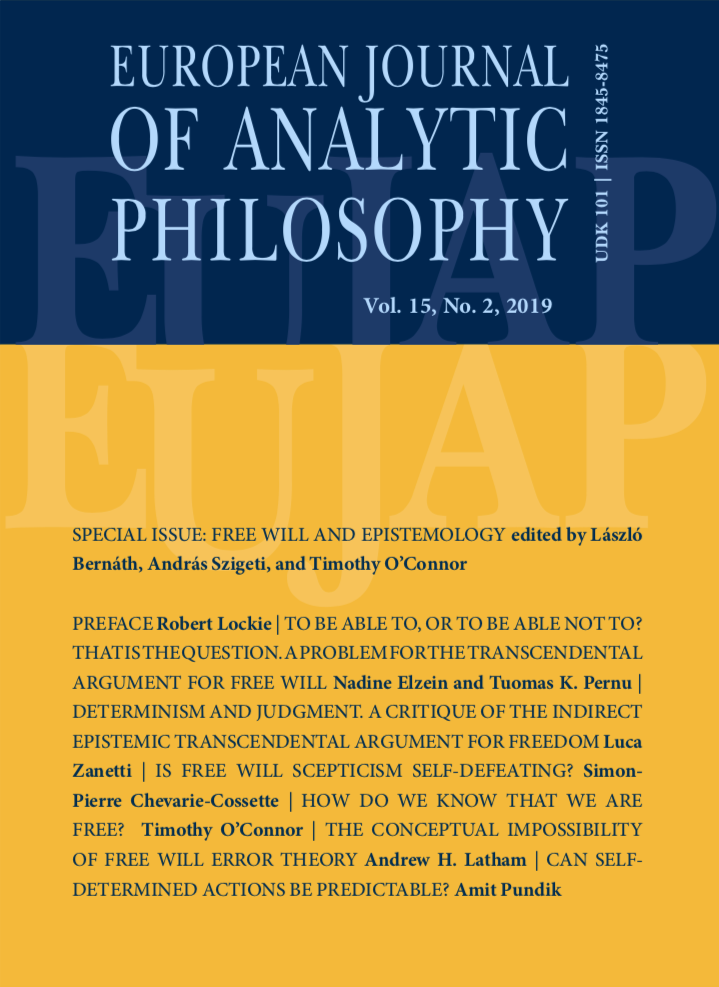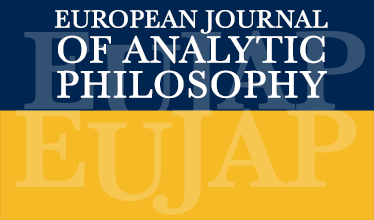Book symposium THE BIOPSYCHOSOCIAL MODEL OF HEALTH AND DISEASE
Part of EuJAP Vol. 17, no. 2.
Maria Cristina Amoretti and Elisabetta Lalumera (guest editors)
BOOK SYMPOSIUM 1 | Pages: (M1)5-8 | Abstract
Introduction to the book symposium “THE BIOPSYCHOSOCIAL MODEL OF HEALTH AND DISEASE: NEW PHILOSOPHICAL AND SCIENTIFIC DEVELOPMENTS BY DEREK BOLTON AND GRANT GILLETT”.
Awais Aftab and Kristopher Nielsen
BOOK SYMPOSIUM 2 | Pages: (M2)5-22 | Abstract | DOI: 10.31820/ejap.17.2.3
In this article we offer a two-part commentary on Bolton and Gillett’s reconceptualization of Engel’s biopsychosocial model. In the first section we present a conceptual and historical assessment of the biopsychosocial model that differs from the analysis by Bolton and Gillett. Specifically, we point out that Engel in his vision of the biopsychosocial model was less concerned with the ontological possibility and nature of psychosocial causes, and more concerned with psychosocial influences in the form of illness interpretation and presentation, sick role, seeking or rejection of care, the doctor-patient therapeutic relationship, and role of personality factors and family relationships in recovery from illness, etc. On the basis of this assessment, we then question Bolton and Gillett’s restricted focus on accounting for biopsychosocial causal interactions. The second section compares Bolton and Gillett’s account with a recent enactivist account of mental disorder that tackles similar conceptual problems of causal interactions. Bolton and Gillett’s utilize elements of the 4E cognition, but they combine these proto-ideas with an information-processing paradigm. Given their explicit endorsement of 4E approaches to mind and cognition, we illustrate some key ways in which a more fleshed out enactive account, particularly one that doesn’t rely on notions of information-processing, differs from the account proposed by Bolton and Gillett.
Kathryn Tabb
BOOK SYMPOSIUM 3 | Pages: (M3)5-28 | Abstract | DOI: 10.31820/ejap.17.2.4
The biopsychosocial model, which was deeply influential on psychiatry following its introduction by George L. Engel in 1977, has recently made a comeback. Recently, Derek Bolton and Grant Gillett have argued that Engel’s original formulation offered a promising general framework for thinking about health and disease, but that this promise requires new empirical and philosophical tools in order to be realized. In particular, Bolton and Gillett offer an original analysis of the ontological relations between Engel’s biological, social, and psychological levels of analysis. I argue that Bolton and Gillett’s updated model, while offering an intriguing new metaphysical framework for medicine, cannot resolve some of the most vexing problems facing psychiatry, which have to do with how to prioritize different sorts of research. These problems are fundamentally ethical, rather than ontological. Without the right prudential motivation, in other words, the unification of psychiatry under a single conceptual framework seems doubtful, no matter how compelling the model. An updated biopsychosocial model should include explicit normative commitments about the aims of medicine that can give guidance about the sorts of causal connections to be prioritized as research and clinical targets.
Diane O’Leary
BOOK SYMPOSIUM 4 | Pages: (M4)5-20 | Abstract | DOI: 10.31820/ejap.17.2.5
After nearly fifty years of mea culpas and explanatory additions, the biopsychosocial model is no closer to a life of its own. Bolton and Gillett give it a strong philosophical boost in The Biopsychosocial Model of Health and Disease, but they overlook the model’s deeply inconsistent position on dualism. Moreover, because metaphysical confusion has clinical ramifications in medicine, their solution sidesteps the model’s most pressing clinical faults. But the news is not all bad. We can maintain the merits of holism as we let go of the inchoate bag of platitudes that is the biopsychosocial model. We can accept holism as the metaphysical open door that it is, just a willingness to recognize the reality of human experience, and the sense in which that reality forces medicine to address biological, psychological and social aspects of health. This allows us to finally characterize Engel’s driving idea in accurate philosophical terms, as acceptance of (phenomenal) consciousness in the context of medical science. This will not entirely pin down medicine’s stance on dualism, but it will position it clearly enough to readily improve patient care.
Hane Htut Maung
BOOK SYMPOSIUM 5 | Pages: (M5)5-27 | Abstract | DOI: 10.31820/ejap.17.2.6
In The Biopsychosocial Model of Health and Disease, Derek Bolton and Grant Gillett argue that a defensible updated version of the biopsychosocial model requires a metaphysically adequate account of disease causation that can accommodate biological, psychological, and social factors. This present paper offers a philosophical critique of their account of biopsychosocial causation. I argue that their account relies on claims about the normativity and the semantic content of biological information that are metaphysically contentious. Moreover, I suggest that these claims are unnecessary for a defence of biopsychosocial causation, as the roles of multiple and diverse factors in disease causation can be readily accommodated by a more widely accepted and less metaphysically contentious account of causation. I then raise the more general concern that they are misdiagnosing the problem with the traditional version of the biopsychosocial model. The challenge when developing an explanatorily valuable version of the biopsychosocial model, I argue, is not so much providing an adequate account of biopsychosocial causation, but providing an adequate account of causal selection. Finally, I consider how this problem may be solved to arrive at a more explanatorily valuable and clinically useful version of the biopsychosocial model.
Derek Bolton
BOOK SYMPOSIUM 6 | Pages: (M6)6-26 | Abstract | DOI: 10.31820/ejap.17.2.7
I respond to the 4 commentaries by Awais Aftab & Kristopher Nielsen (A&N), Hane Htut Maung (HHM), Diane O’Leary (DO’L) and Kathryn Tabb (KT) under 3 main headings: “What is the BPSM really?” & Why update it?; “Is our approach foundationally compromised?”, and finally, “Antagonists or fellow travellers?”.


